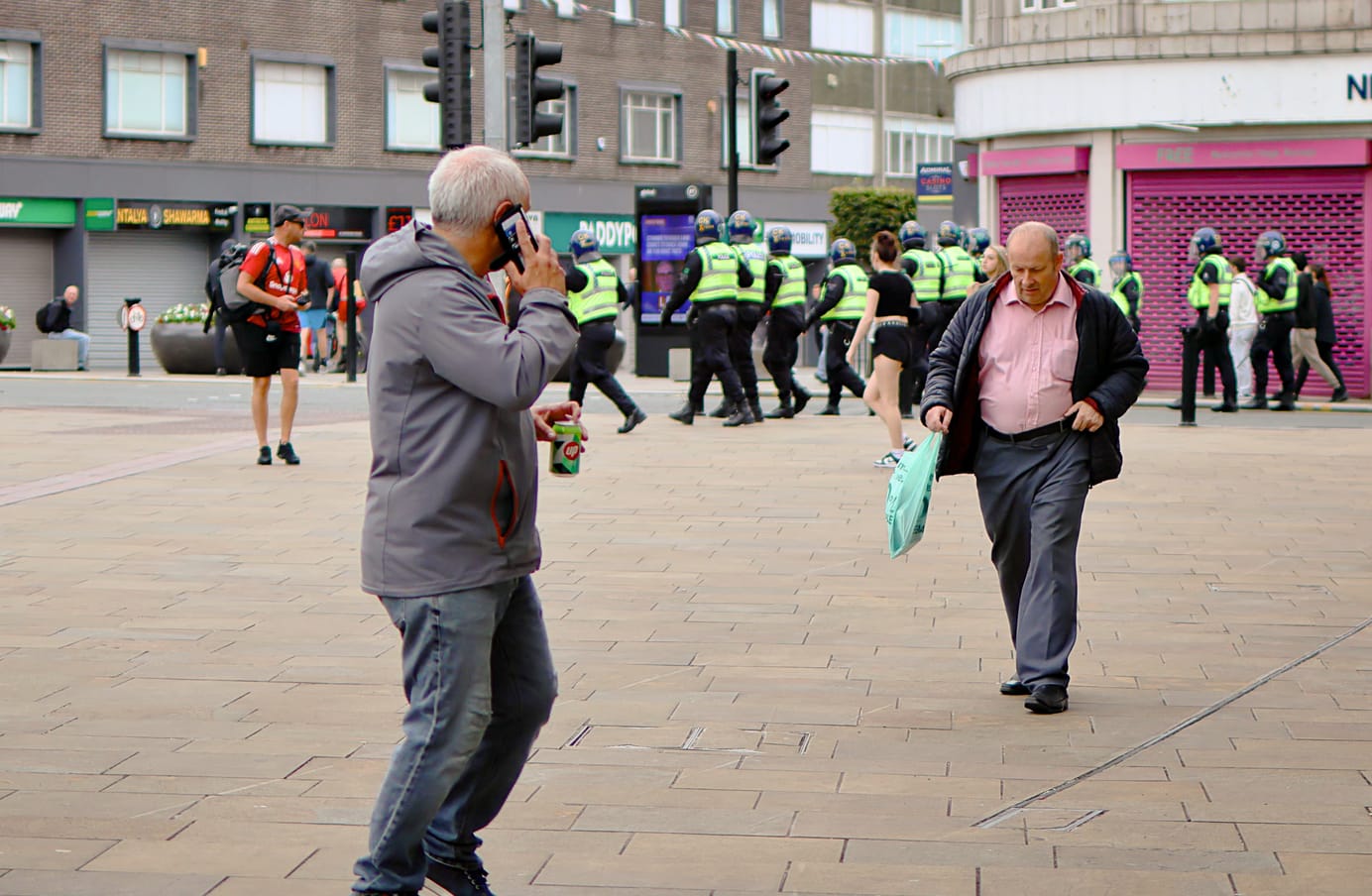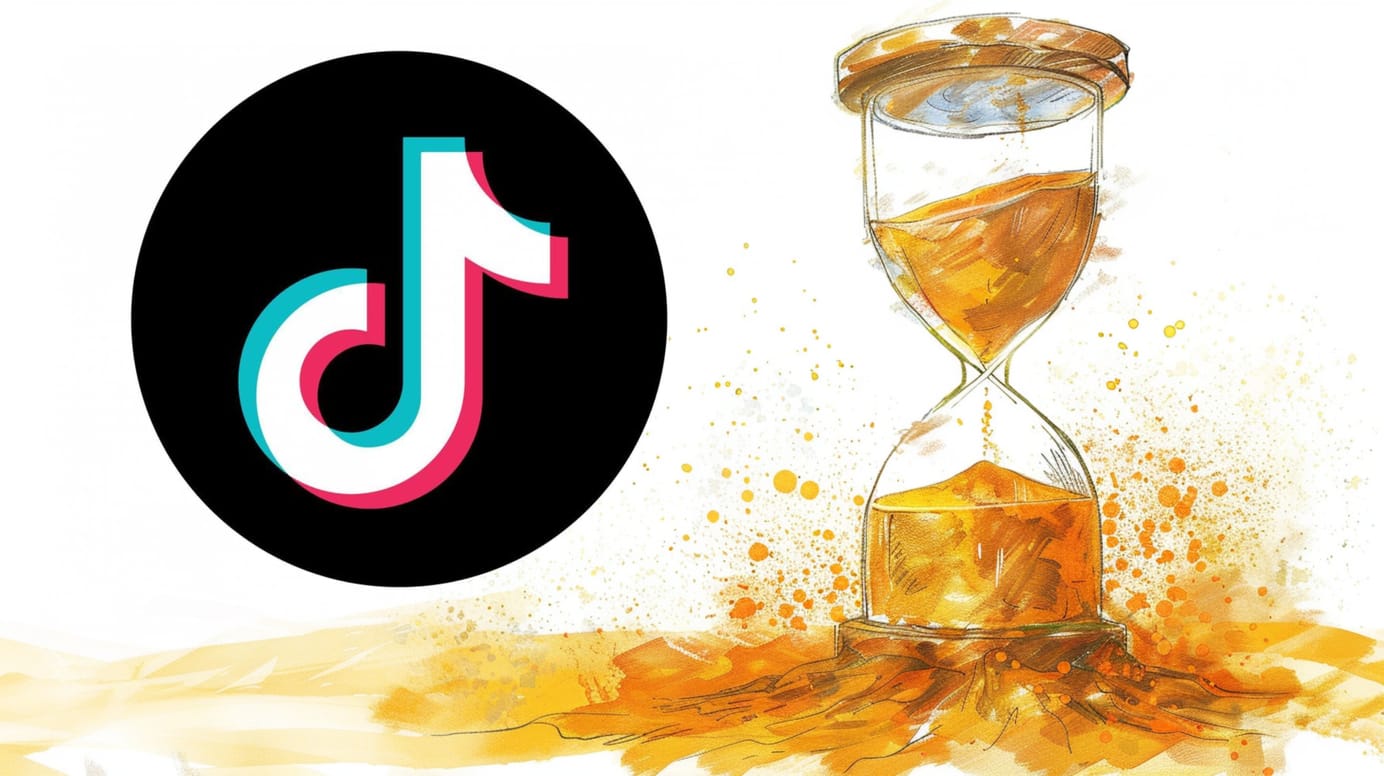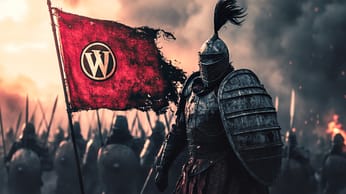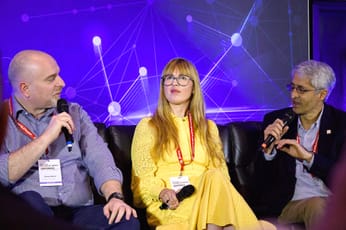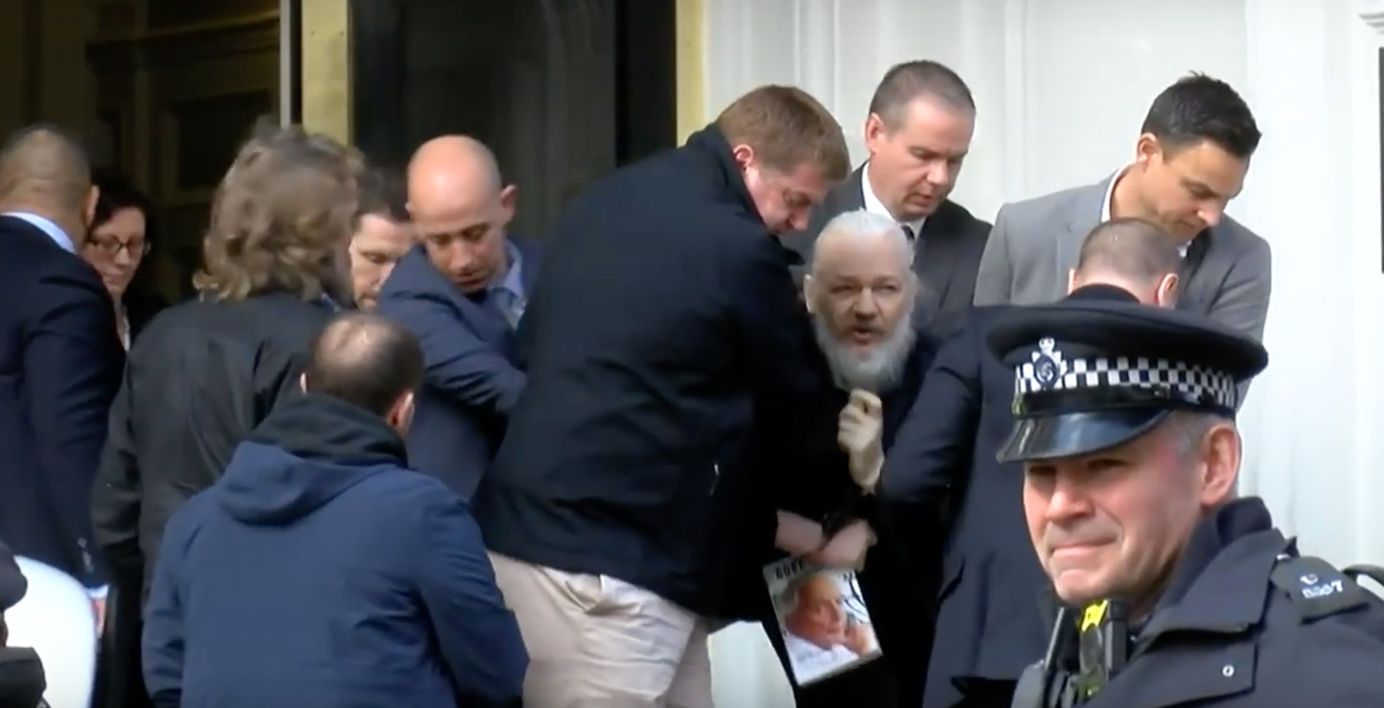
As Julian Assange is arrested, the questions posed by Wikileaks remain as pressing as ever
Julian Assange has been dragged from the Ecuadorian embassy under arrest. Whatever happens to him, the impact of Wikileaks on journalism and politics will continue to be felt for years.
One of the longest running sagas in the relationship between journalism, politics and the internet has taken another twist this morning. Kate Lyons for The Guardian:
Julian Assange has been arrested at the Ecuadorian embassy in London, where the WikiLeaks founder was granted refuge in 2012 while on bail in the UK over sexual assault allegations against him in Sweden.
The arrest follows the decision of the Ecuadorian government to withdrawn asylum from their seven year guest.
In a sovereign decision Ecuador withdrew the asylum status to Julian Assange after his repeated violations to international conventions and daily-life protocols. #EcuadorSoberano pic.twitter.com/pZsDsYNI0B
— Lenín Moreno (@Lenin) April 11, 2019
Update: 12:39pm
It looks like Assange is on track to be swiftly extradited to the US:
That was fast. And potentially very serious and alarming. https://t.co/i7F0S8KEkL
— James Ball (@jamesrbuk) April 11, 2019
The long-term impact of Wikileaks
As we see Assange getting dragged from the embassy, looking very, very different from his 2012 self, it's getting hard to remember how significant Wikileaks was in the late 2000s and the early 2010s. Coasting on the height of the pre-social media open web wave, where "wiki" was still a cool, internet-style thing to attach to your name (not that Wikileaks was ever a wiki in any real sense), the Manning revelations sent a bombshell through our understanding of the relationship between government and the internet. It was even made into a film.
The Manning leaks were followed up by the Snowdon revelations, which came directly to The Guardian, not through Wikileaks. The story was very much the last gasp of the old, more hippy era of the internet, when it was seen as a liberating force for the individual, and free from the stranglehold of large governments, which seems deeply ironic given what we know about state-sponsored misinformation on the internet now.
It was death throes of the "information wants to be free" period, before we realised that Zuckerberg had locked so much of it up. Again, it seems hard to remember an age when the internet appeared to be holding governments accountable, rather than the governments trying to hold internet businesses accountable.
Snowdon himself is less than enthused by today's news:
Images of Ecuador's ambassador inviting the UK's secret police into the embassy to drag a publisher of--like it or not--award-winning journalism out of the building are going to end up in the history books. Assange's critics may cheer, but this is a dark moment for press freedom. https://t.co/ys1AIdh2FP
— Edward Snowden (@Snowden) April 11, 2019
Much of the reaction pushes us to ask: was what Assange and Wikileaks did journalism? And that's a question that's been being debated for a very long time now.
Journalism after Wikileaks
Nine years ago, Emily Bell was pondering the impact of Wikileaks on journalism:
Wikileaks has ignited a debate about the rights and responsibilities attached to freeing information. It has illustrated that Governments, however well intentioned, do not have the best judgement in terms of what it is right for citizens to know. It has shown that the established media no longer necessarily gets to make that call either, and forces us all to think about the consequences of that shift.
Bell's piece is typical of many form the period: broadly positive about Wikileaks itself, but thoughtful about the impact of it on existing relationships between press and government. Certainly The Guardian was proud of its involvement but, by 2011, it was starting to distance itself from the operation, as were other media partners of Wikileaks, with James Ball, who was heavily involved with Wikileaks as a staffer, explaining why he'd stepped away:
I was disturbed and conflicted. I still found the organisation's aims were in many ways laudable, the financial and legal pressures unjust, and its publishing pattern far more responsible than it received credit for. I couldn't support its internal culture, its lack of accountability, willingness to lie publicly, and crucially its failure to condemn Shamir. I supported the organisation's principles, but not its methods.
The years since have deepened our understanding of the dynamics at play, with links emerging between the organisation and Russia's efficient disinformation and intelligence machine.
Wikileaks and Russia
The role of Wikileaks on the last US Presidential election has come under greater scrutiny in recent years, as it became apparent that the source of some of its leaks was state-sponsored Russian hacking. The Meuller investigation's indictments pulled together some elements of the story, as Raffi Khatchadourian wrote for The New Yorker:
The over-all picture that the indictment offers of the “WikiLeaks connection,” as Clapper once put it, is entirely consistent with previous intelligence assessments, which said that the G.R.U. provided Julian Assange, the editor of WikiLeaks, with the D.N.C. and Podesta archives. But, at the level of evidence, the indictment offers a strange mix: tantalizing, fragmentary new details that suggest the when and how without quite revealing everything that happened.
With the key player locked away and increasingly isolated in the Ecuadorian embassy, the resolution of this has been hanging in the air. It's likely that we'll learn more in the coming months. But Assange has made himself a lot of very powerful enemies, while alienating many who once supported him. His post-embassy life is unlikely to be an easy one.
But, equally, whatever happens to Assange and Wikileaks, the world he helped birth is still with us. And the questions Bell was asking nearly a decade ago remain more relevant than ever. What do we do when a big data dump lands on our desk? At least one question we have to ask ourselves is: "who released this information, and why?". With the Wikileaks activity of 2016, we know the answer: to help Donald Trump get elected.
In the information battleground of 2019, we need to be very cerful about whose messages we are spreading, and why. As Bell said in her 2010 piece:
I attended a really interesting event here at Columbia’s Journalism School last week where FCC Commissioner Michael Copps gave a talk about reforming the media. Yochai Benkler, Harvard law professor and the author of Wealth of Networks commented that he thought that the nature of the latest disclosures demonstrated that the job of the mainstream media has now become one simply of ‘amplification’.
It was, and remains, a critical insight. So, we need to ask ourselves whom we are amplifying - and why.
Sign up for e-mail updates
Join the newsletter to receive the latest posts in your inbox.


